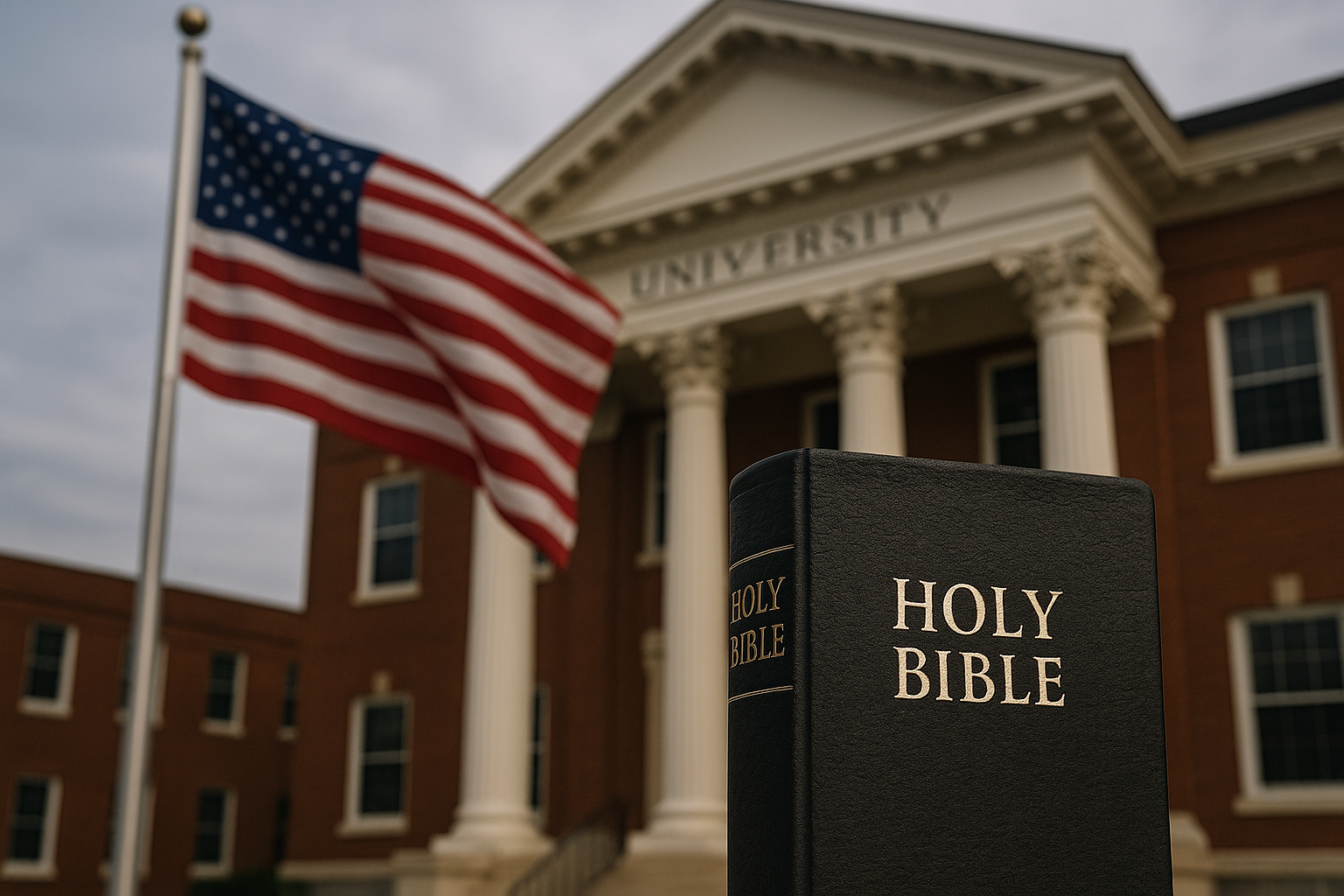Hannibal-LaGrange University (HLGU), a Missouri-based Baptist institution, has issued a forceful challenge to the Biden administration over a proposed U.S. Department of Education rule that it argues would violate the religious freedom of faith-based colleges across the nation.
The rule in question centers on the reinterpretation of Title IX, particularly relating to gender identity and sexual orientation. If implemented, the changes would redefine sex-based protections to include these categories, thereby compelling religious institutions to alter housing policies, employment practices, and codes of conduct in ways they argue directly conflict with their faith-based doctrines.
HLGU President Dr. Robert Matz has taken a leading role in opposing the regulation. In a public statement, he warned that the proposed policy would “undermine the ability of religious institutions to maintain faith-based standards in hiring, housing, and admissions.” He further called on the Department of Education to recognize the Constitutionally-protected freedoms of religious organizations and halt the proposed overhaul.
The university’s primary contention lies in what it perceives as an unconstitutional imposition on religious doctrine. “What’s being proposed here is not mere clarification—it’s a coercive mandate,” Matz said. “This rule would effectively force Christian colleges to choose between their deeply held beliefs and continued federal funding.”
In its formal letter to the Department of Education, HLGU emphasized the foundational American value of religious liberty, urging officials to withdraw the rule before it erodes decades of legal protections for faith-based institutions. The letter outlines scenarios where the regulation could pressure schools to allow biological males in female dormitories, compel the use of preferred pronouns under threat of discipline, and silence Biblical teaching on sexuality under the guise of nondiscrimination.
Supporters of HLGU’s stance note that this rule follows a pattern of overreach by the Biden administration, which has consistently used federal power to advance progressive social norms. The reinterpretation of Title IX, initially passed in 1972 to ensure gender equality in education, is now being wielded to enforce ideological conformity, critics argue.
Legal experts also raise red flags about the proposal’s alignment with the First Amendment. “Forcing religious institutions to adopt secular sexual ethics under the threat of losing federal support crosses a constitutional line,” said Travis Barham, senior counsel at Alliance Defending Freedom. “The courts have long recognized the right of religious schools to operate in accordance with their beliefs.”
Adding to the concern, this federal push comes as religious colleges nationwide face mounting pressure to conform to politically-driven ideologies that many view as incompatible with their mission. Institutions like HLGU assert that their theological teachings aren’t arbitrary policies—they’re the core of their identity and mission.
The move has also drawn attention from national watchdogs. Nicole Neily, president of Parents Defending Education, stated that the administration’s actions appear less about fairness and more about punishing dissenting worldviews. “This is not about equality; it’s about control,” she noted.
Conservatives argue that the Biden administration’s approach leaves no room for reasonable accommodation. Despite the longstanding tradition of religious exemptions within federal law, this proposal, as critics interpret it, would narrow or even eliminate those exemptions under the guise of civil rights enforcement.
Support for HLGU has poured in from both religious and civil liberty groups. Many see this fight as emblematic of a broader cultural battle—one where federal institutions increasingly target traditional values in the name of progress. The stakes are high: Should this rule be enacted without substantial revision, dozens of Christian universities could face lawsuits, federal scrutiny, or the loss of essential funding.
Observers point out that this is not an isolated skirmish. It is part of a growing trend where government regulation threatens to infringe on constitutionally-protected freedoms under the banner of social progress. With the November election looming, religious liberty advocates say the outcome of this debate could reverberate far beyond college campuses.
HLGU remains steadfast in its opposition. “This is a hill worth standing on,” Dr. Matz affirmed. “Our calling is not just to educate minds, but to form lives rooted in truth. If we abandon that for federal dollars, we lose more than our integrity—we lose our purpose.”
As the Department of Education reviews public feedback, faith-based institutions are urging Americans to speak out while there’s still time. For them, the issue isn’t just about compliance. It’s about conscience.





